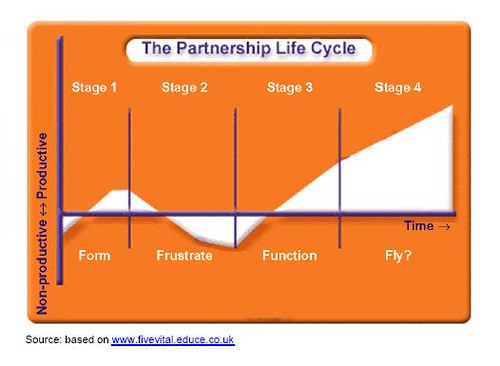Topics:
partnership development, rural, children and young people, skills and capacity
Yesterday I was in the spa town of Buxton - the sun was shining, the flowers blooming, the Peak District lambs were gambolling. However, I was in a windowless auditorium.
But it was worth it. I spent the afternoon at a learning event for the Peak DistrictPerformance Improvement Partnership (PIP).
PIP activites are centred around a programme of projects that received funding through the ODPM's Capacity Building Fund. Unusually, the
Peak District National Park Authority, rather than a council, is the coordinating agency - other partners were
Derbyshire County Council,
Derbyshire Dales District Council,
High Peak Borough Council,
Staffordshire Moorlands DC and the
Lake District NPA.
As partners, they used the CBF to develop approaches to building leadership and management skills and organisational learning and capacity. Their approach seemed to be focused on learning by doing - though they have supported this learning with training and formal and informal networking.
Some of their projects would be of particular interest to rural authorities, others - some of which focused on improving community engagement would be of interest to any public sector bodies.

Especially interesting was some of their work engaging young people through youth forums and in schools. In response to the usual youthful cry of "there's nothing to do", young people in the area are setting up a website, with reviews of activities and a 'what's on' feature that will be available this summer. (I, too, was a teenager in a rural area. There
is little to do, but you can make your
own fun.)
There was also an interesting project which introduced looked after children to the park, countryside skills and rock climbing. Pictured Park Ranger Andy McGraw explains how the programme worked at yesterday's learning event.
Jim Dixon, the Chief Executive of Peak District NPA described some of the benefits as:
- share learning
- outcome based partnership
- maximising effectiveness of democracy
- the chance to innovate
- developing a learning approach
- and building the trust and confidence among partnes that they can 'deliver together' through future challenges.
Over the next few months, Programme Manager Nic Hutchins will be drawing out some of the broader lessons from their work and we hope to share that here and elsewhere. In the meantime, she contributed to the online conference on partnership governance and performance last Autumn and the
conference report is on IDeA Knowledge. There is a also a publication about partnership working in the region
Derbyshire: An Excellent model of partnership working - A case study (link to a pdf) on the
Local Government East Midlands website.
By the way, there are PM case studies on both
Derbyshire County Council and
Derbyshire Dales DC as part of the Performance Management, Measurement and Information project.
Back to
main page

